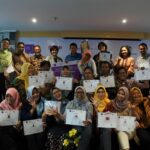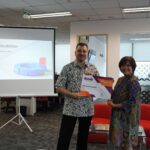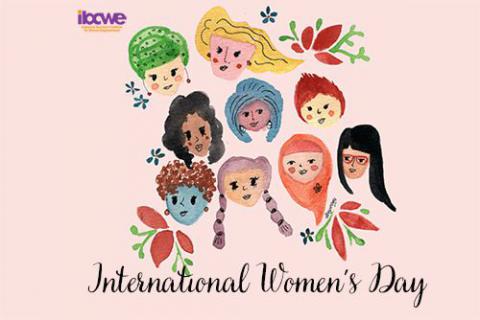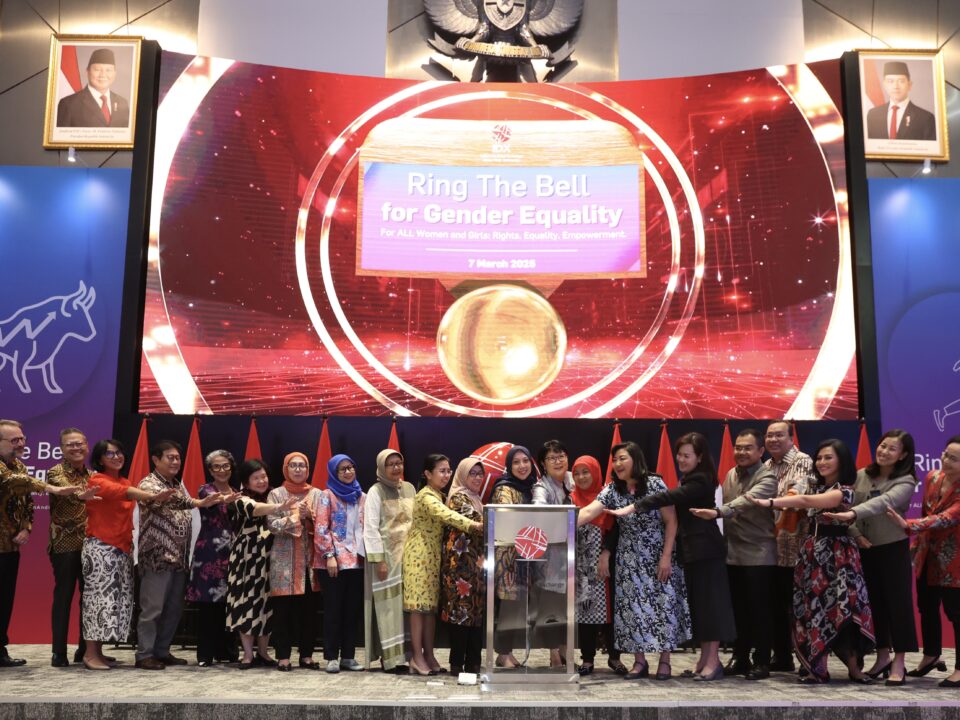
Graduation of Journalist Learning Class: Talking about Gender Equality
December 24, 2023
Telkomtelstra Joining IBCWE
December 24, 2023Bad precedents often stick to women in the work environment. As the party outlined to be a mother, women are often underestimated in the professional work environment because they are considered not to be able to divide the time between work and family. This is exacerbated by the patriarchal mindset that is still firmly rooted in Indonesia and still considers that the best women are women who stay at home taking care of their families and domestic affairs. The emergence of stereotypes such as women are weak, fear of taking risks, using too much feelings, makes the image of women less appropriate as leaders and ultimately makes women’s careers stumbled.
Minister of Finance and Economy, Sri Mulyani, in the 2018 IMF Summit in Bali said that we must together encourage women in the economy and empower women in the world of work. For this reason, the government needs to encourage business people to provide equal opportunities for women, to eliminate glass ceilings for women to reach high careers. In terms of the government itself, it is also expected to be able to provide the right rule of thumb in accordance with women’s needs, such as the existence of lactation rooms and policy rules for business people to strengthen their steps on International Women’s Day. “Without the help of policies that can ease the burden on women, then promoting gender equality in the workforce will be very difficult,” Sri Mulyani said.
We can see examples of government policies that are still unequal in the difficulty of women getting loans for venture capital. Questions regarding marriage certificates and assets owned by husbands are still often accepted as if women must always be supported by men to be self-sufficient. This patriarchal thinking certainly hinders the development of women as business leaders in Indonesia.
In the SNAP 2018 study, Investing in Women (a regional project funded by the Australian Government) explained that women in Indonesia showed an interest of 48% percent to work to become economically independent, 24% of women worked to contribute to their families, and 18% women work to fulfill self-satisfaction. This shows that women in Indonesia, especially in urban areas, consider working not only to make themselves economically independent but for self-actualization and self-development and family which in turn will make women have added value and can contribute not only to themselves but also the environment. Women also have a great desire to advance and even occupy the top position in the professional world.
Based on research conducted by Avon on 14,000 women in 15 countries around the world. Only 48% of women are satisfied with their work. But the good thing is, for most women who have jobs feel their work not only provides financial benefits but is greater than that, they receive personal benefits. As many as 77% said their work increased their confidence in their abilities, 76% said their work increased independence, and 74% of their jobs made them good role models for their children.
It is not easy to change the patriarchal mindset that has deep roots and opens the way for women to be easier in pursuing careers and developing their businesses. But with the current situation, and the fact that having a job can make women feel more confident and independent, let’s all hope that this is not impossible. The spirit of International Women’s Day in 2019 is only the first step for all women and men to be fully aware, that by jointly supporting equality, economic prosperity will increase.





